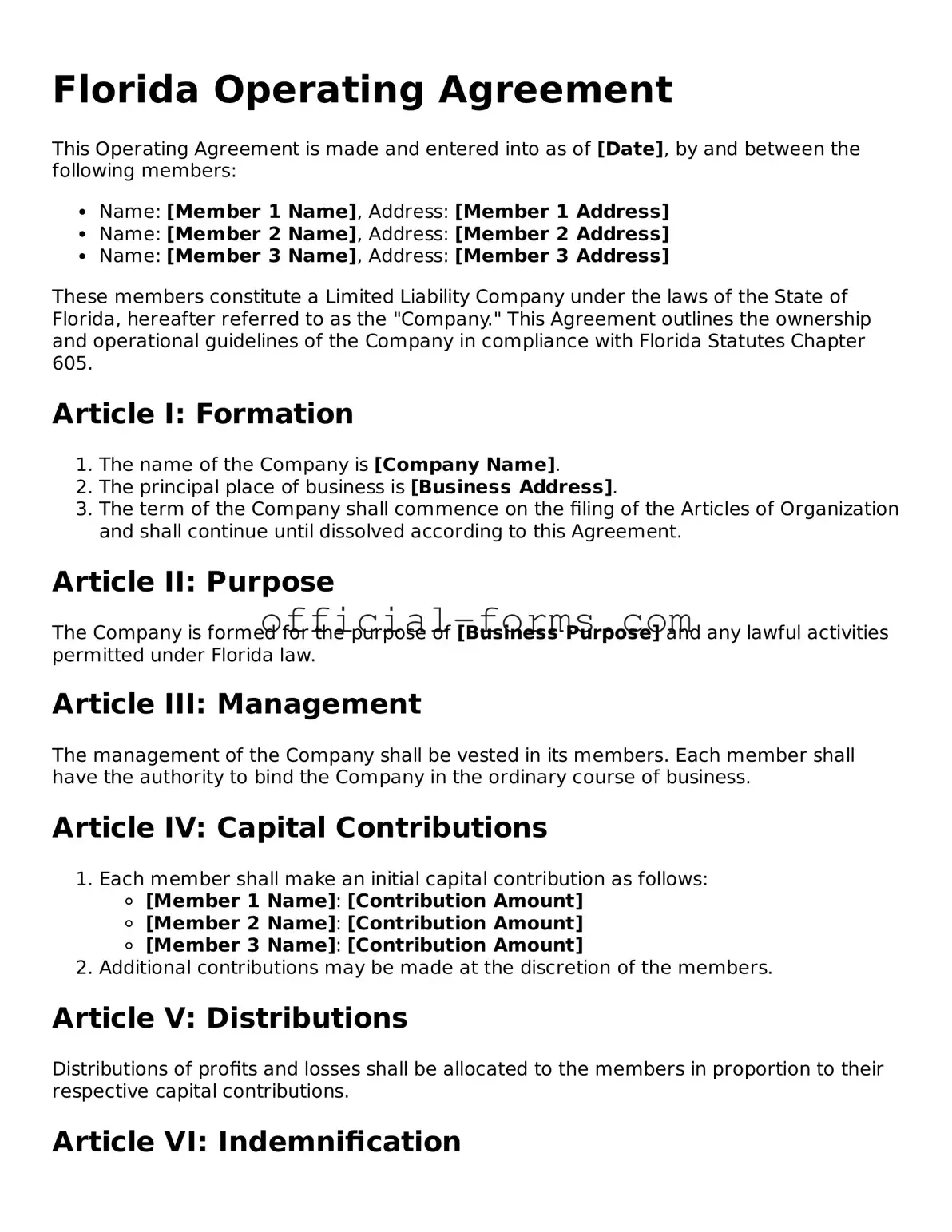Filling out the Florida Operating Agreement form is a crucial step for any limited liability company (LLC). However, many individuals make common mistakes that can lead to complications down the line. Understanding these pitfalls can help ensure that the agreement is completed correctly.
One frequent mistake is failing to include all members in the agreement. Every member of the LLC should be listed to establish their rights and responsibilities clearly. Omitting a member can create disputes and confusion about ownership and decision-making authority.
Another common error involves inadequate descriptions of member contributions. It is essential to specify what each member is contributing, whether it be cash, property, or services. Vague descriptions can lead to misunderstandings regarding the value of contributions and ownership stakes.
People often neglect to outline management structure in the Operating Agreement. Whether the LLC is member-managed or manager-managed should be clearly defined. This decision impacts how the company operates and who has the authority to make decisions.
Additionally, not addressing profit and loss distribution can be problematic. The agreement should detail how profits and losses will be allocated among members. Failing to do so can result in disputes and dissatisfaction among members.
Some individuals make the mistake of not including provisions for member withdrawal or addition. It is important to outline the process for a member leaving the LLC or for new members joining. This helps prevent conflicts and ensures a smooth transition.
Many also overlook the importance of compliance with state laws. The Operating Agreement must align with Florida's regulations governing LLCs. Ignoring these laws can lead to invalid agreements and potential legal issues.
Another mistake is failing to update the agreement as circumstances change. Life events, such as a member's death or a change in business direction, may necessitate updates to the Operating Agreement. Regular reviews can help keep the document relevant.
Some individuals may not seek legal advice before finalizing the agreement. Consulting with a legal professional can provide valuable insights and help avoid mistakes that could have long-term consequences.
Lastly, not properly signing and dating the document is a common oversight. All members must sign and date the agreement to ensure its validity. Without proper signatures, the agreement may not hold up in legal situations.
By being aware of these mistakes, individuals can take the necessary steps to create a comprehensive and effective Florida Operating Agreement, thereby protecting their interests and ensuring smooth business operations.

